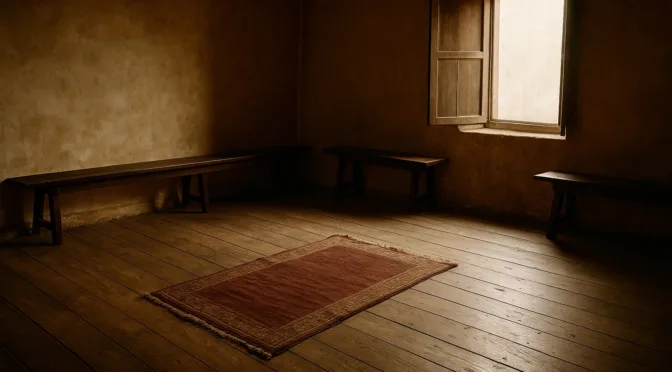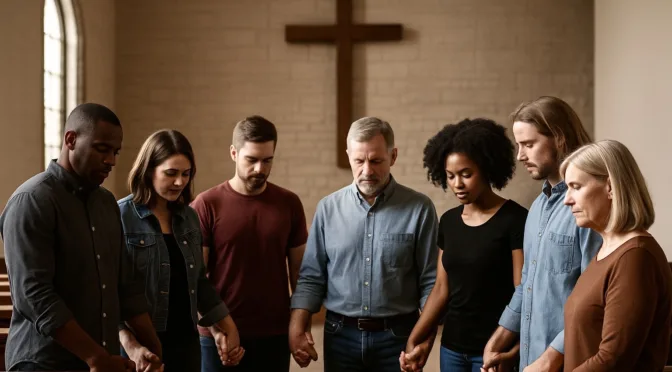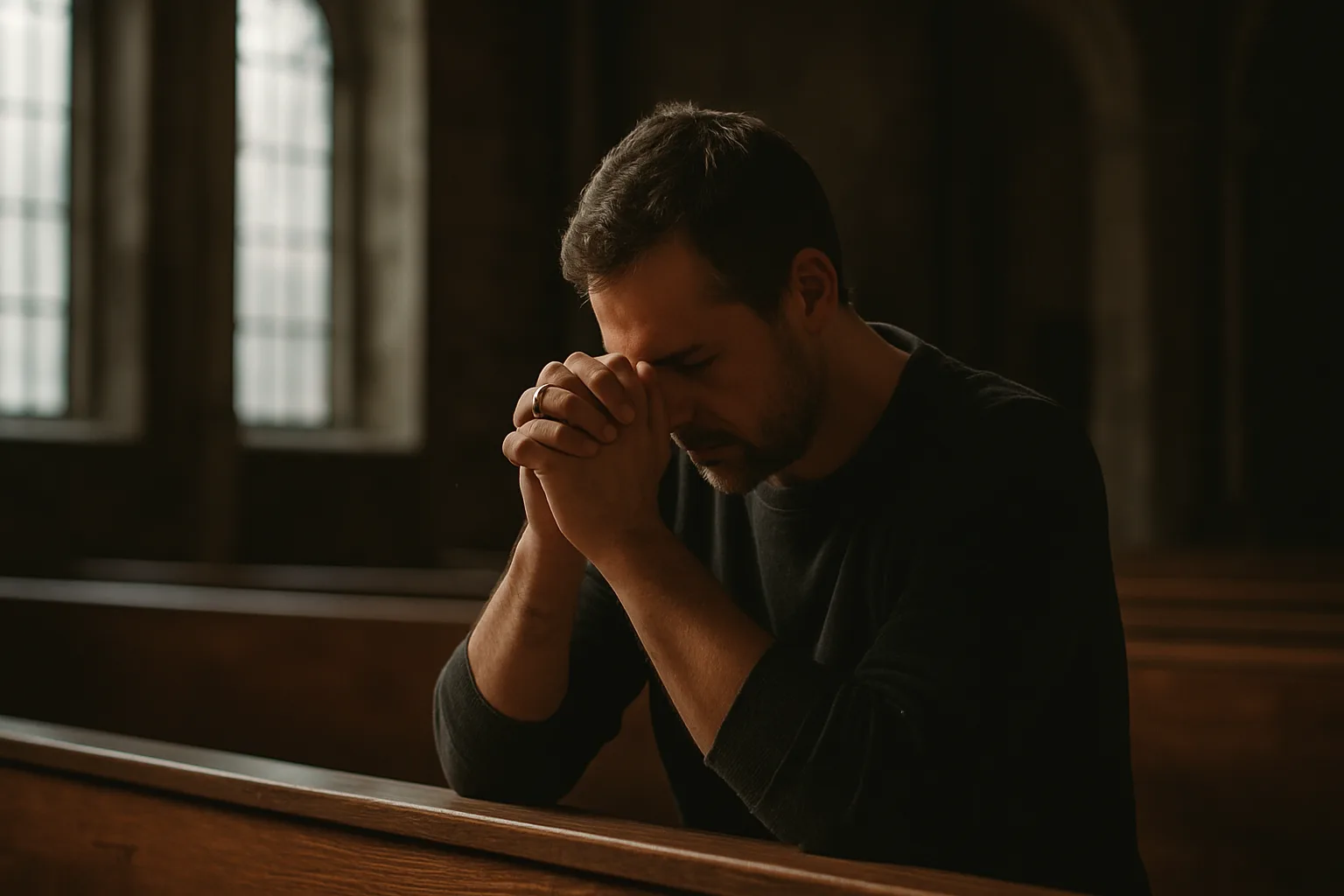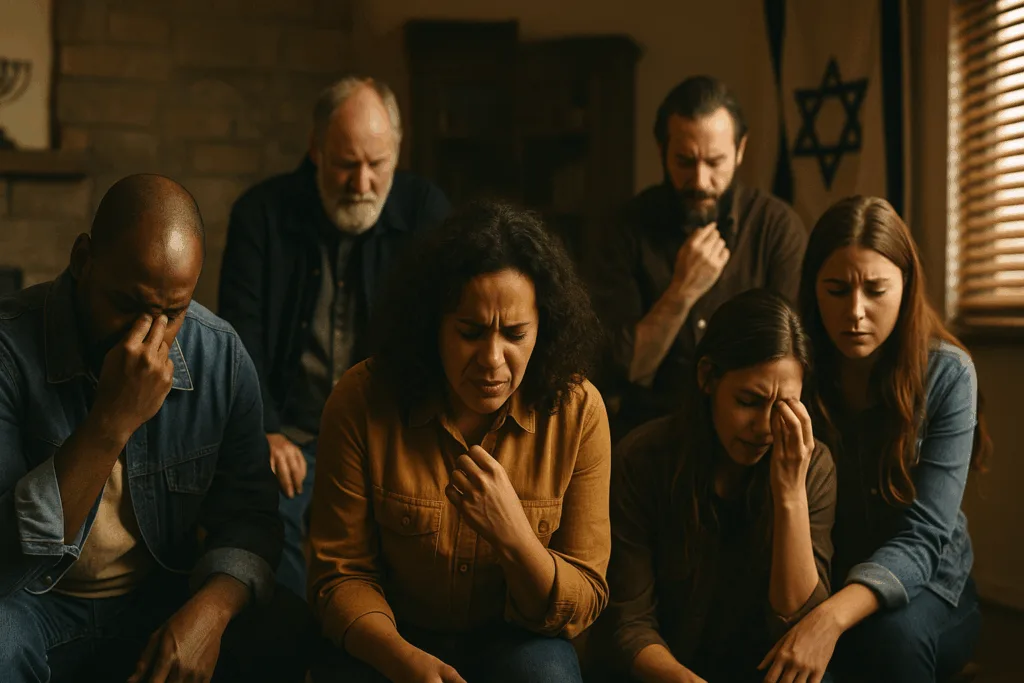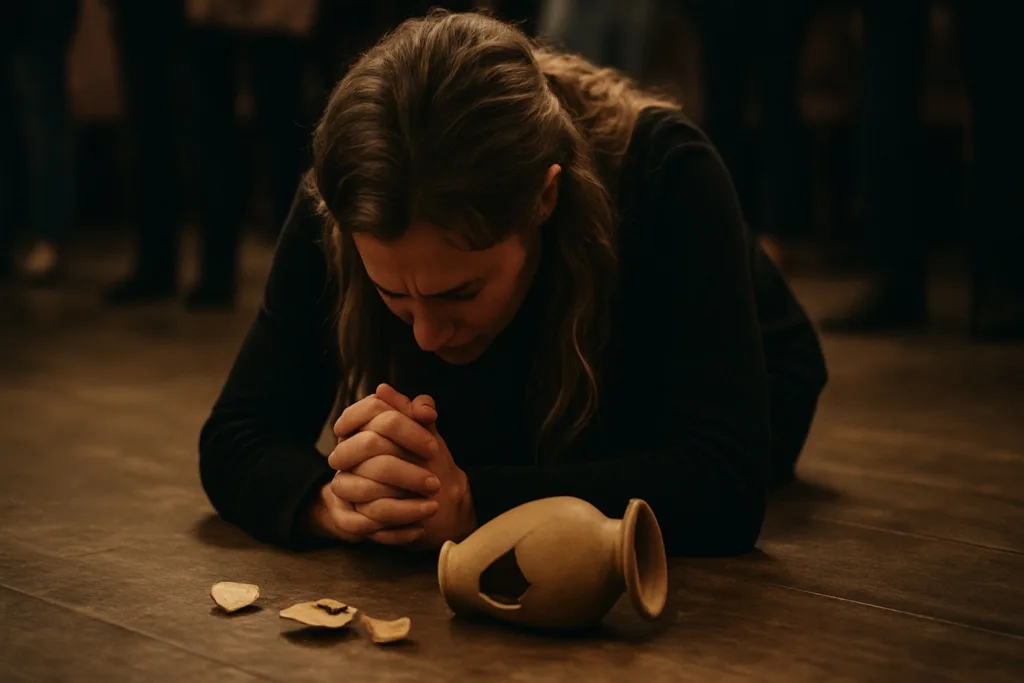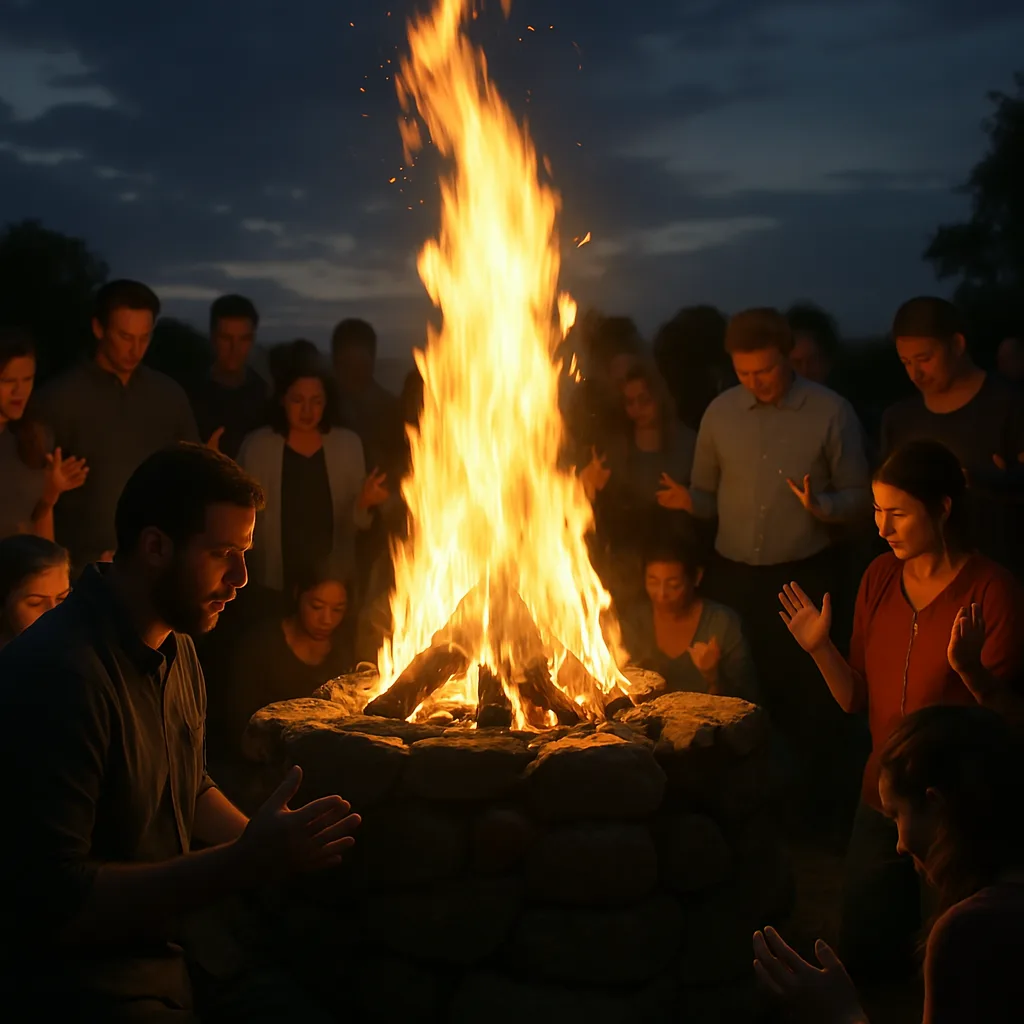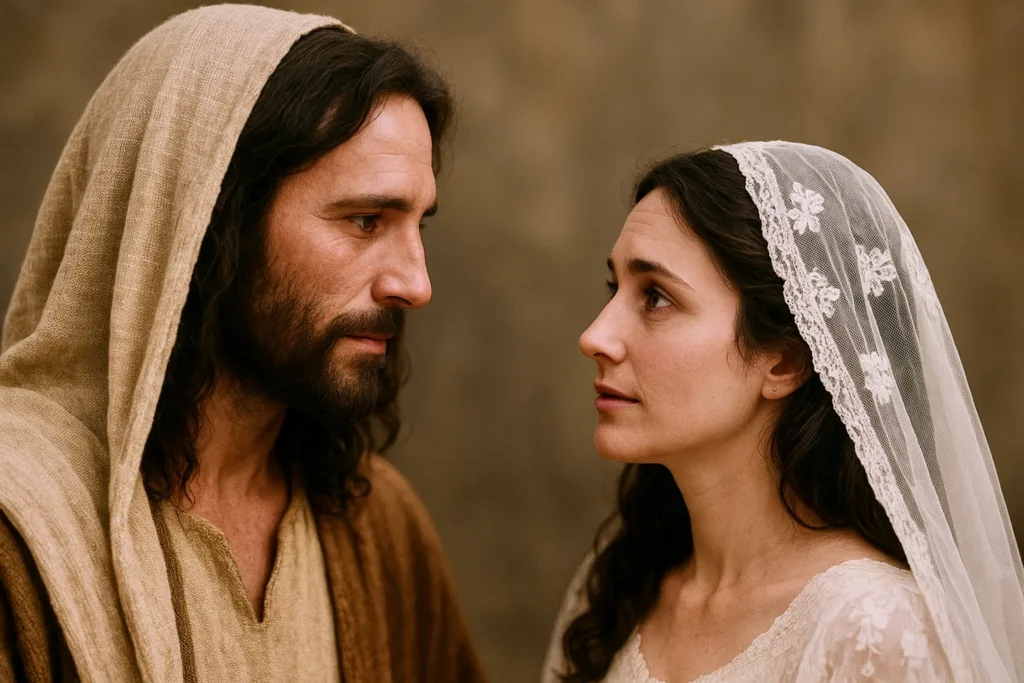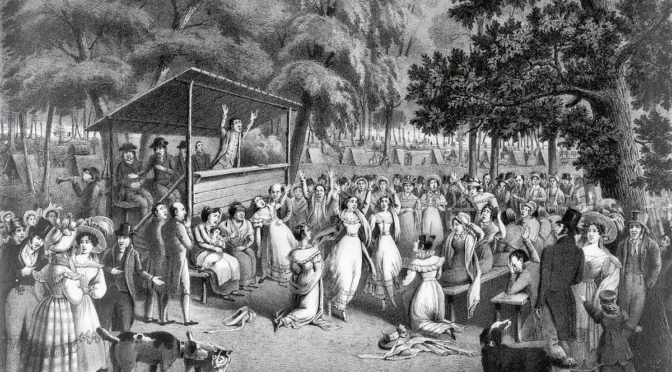Beloved Church, hear the Spirit of the Lord calling you back to your first love: Return to the heart of Jesus Christ, the One who gave Himself for you, the One who purchased you with His blood, and the One who calls you His Bride. Too long have we been distracted by building our own agendas—constructing kingdoms for ourselves, striving for headcounts, and seeking influence over obedience. This is not the Gospel we were called to live or preach. The Church is not secondary to the world. The Church is the primary vessel of God’s authority, and the world exists in submission to the Kingdom of God.
“But I have this [charge] against you, that you have left your first love [you have lost the depth of love that you first had for Me]” (Revelation 2:4, AMP).
The Spirit of the Lord declares: This is the hour to repent of selfish ambition, to tear down the man-made kingdoms that have taken root in My Church, and to unite under My name alone. No longer can you pursue platforms, build personal empires, or measure success by headcounts and influence. I have called you to make disciples, not followers of your own vision, but followers of Me, the risen Christ. You were not commissioned to guard your own reputation or territory, but to advance the eternal Kingdom of God. Every division born of pride, every rivalry rooted in competition, and every fear of losing members must be surrendered at the foot of the cross.
The Church was never designed to function as isolated pieces, fractured by pride and self-interest. It was meant to be one unified Body, knit together in love and humility, with Christ as the Head. Pride and selfish ambition have caused ministries to compete instead of collaborate, robbing the Church of its power and testimony. This is not My design. I am calling My Bride to unity—unity in purpose, unity in spirit, and unity in mission. The world does not need more scattered kingdoms; it needs the fullness of My Kingdom displayed through a Church that glorifies one Lord, one Savior, and one King.
Beloved, the time for building for yourselves has passed. Tear down what exalts man, and lift up what exalts the name of Jesus. Lay aside every fear and embrace the greater call: to come together as one people, for My glory alone.
“There is one body [of believers] and one Spirit—just as you were called to one hope when called [to salvation]—one Lord, one faith, one baptism, one God and Father of us all who is [sovereign] over all and [working] through all and [living] in all” (Ephesians 4:4–6, AMP).
Beloved, stop counting heads and start counting the cost. The Gospel was never about popularity, comfort, or numbers in a building—it is about radical surrender to the One who surrendered everything for you. Jesus did not call us to build comfortable lives or safe ministries; He called us to take up our cross daily and follow Him, no matter the cost.True discipleship requires the laying down of self—our ambitions, our fears, and our desire for approval from the world. It is not about how many people fill the pews, but about how many lives are truly transformed by the power of the Holy Spirit.
The Church is not at the mercy of the world’s agendas. The schemes of man, the shifting ideologies of culture, and the powers of darkness cannot prevail against the Body of Christ. The world is secondary to the Kingdom of God, and we must live with this truth in our hearts and actions. We are not called to react in fear to the world’s systems, but to walk in the authority given to us by our Lord. We are the head, not the tail; above, and not beneath. God has entrusted us with His authority to bring His Kingdom to bear on the earth, and we must not shrink back from this responsibility.
Beloved, the systems of this world will bow to the name of Jesus. Every government, every power, every principality, and every force of darkness must submit to His authority. But this requires His Bride—the Church—to walk in unity, purity, and power. When we stop competing with one another and start advancing as one Body under Christ, we will see His glory revealed. The Church is not a passive institution; it is the active, living, powerful agent of God’s Kingdom on earth. Rise up in faith, beloved, and walk in the authority you have been given!
“And He put all things [in every realm] in subjection under Christ’s feet, and appointed Him as [supreme and authoritative] head over all things in the church, which is His body, the fullness of Him who fills and completes all things in all [believers]” (Ephesians 1:22–23, AMP).
The Spirit is calling us back to the simplicity and power of the Gospel: to love the Lord our God with all our heart, soul, mind, and strength, and to love one another as Christ has loved us. This is the foundation of our faith, yet so often it is overshadowed by programs, agendas, and personal ambitions. We have complicated what God has made clear. Love is not just an abstract concept; it is the tangible evidence of God’s Spirit at work in us. Without love, our words are empty, our works are meaningless, and our witness is powerless.
Beloved, cross-church and cross-denominational unity is not optional—it is essential to the mission of God’s Kingdom. We are one Body, and when one part of the Body isolates itself, the whole Body suffers. When churches and ministries refuse to collaborate out of fear of losing members, pride in their distinctiveness, or the desire to protect their own territory, they grieve the heart of God. These divisions are rooted in selfishness and insecurity, not in the Spirit of Christ. God is calling His Bride to lay down these barriers and embrace the unity that Jesus prayed for in John 17, so that the world may believe in Him.
“By this everyone will know that you are My disciples, if you have love and unselfish concern for one another” (John 13:35, AMP). Our love for one another is the testimony that the world needs to see. It is not our programs, platforms, or performances that will draw people to Christ, but the supernatural love that flows through us as we walk in unity. This love transcends denominations, cultures, and personal preferences. It is selfless, sacrificial, and unifying.
Let us repent of the pride and fear that keep us divided, and let us press into the simplicity of the Gospel. God is not glorified by isolated silos; He is glorified when His people work together, worship together, and advance His Kingdom as one Body. The world is watching, and they will know we belong to Christ by the way we love one another. Let us be the Church that glorifies God by walking in love and unity!
Rise, beloved Church, and tear down every wall of division that has separated you from one another and from the fullness of God’s purpose. These walls—whether built by pride, denominational differences, fear of losing control, or self-preservation—must come down. God has called you to be one Body, not many factions, one Bride, not divided kingdoms. Now is the time to abandon self-made agendas and surrender to His greater vision. Stop building for yourselves what God has called you to build for Him. Stop striving for your own platforms, programs, and prestige, and instead focus on advancing His Kingdom.
Stop fearing collaboration, beloved, for it is the enemy who sows fear to keep you isolated and ineffective. When the Church refuses to work together, it undermines the mission of the Gospel. This fear—whether of losing members, influence, or identity—is a tool of division. But Jesus prayed for our unity because He knew that a unified Bride would reflect His love and power to a watching world. “I do not pray for these alone [it is not for their sake only that I make this request], but also for [all] those who will [ever] believe and trust in Me through their message, that they all may be one; just as You, Father, are in Me and I in You, that they also may be one in Us, so that the world may believe [without any doubt] that You sent Me” (John 17:20–21, AMP).
The world will not believe in the power of the Gospel until it sees the power of God’s love in His unified Bride. It is love—not numbers, programs, or platforms—that will convince the world that the Church is different, that the Church is alive, that the Church belongs to Christ. Division weakens our witness, but unity magnifies God’s glory. Let the world see His love made manifest through us as we work together in humility and selflessness.
Beloved, the time has come to reclaim what was stolen. Every soul that the enemy has taken, every family that has been broken, every generation that has been lost to deception must be restored. The Church cannot stand idly by, fragmented and ineffective, while the enemy ravages the harvest fields. We must rise in unity, demanding a sevenfold restoration of what the enemy has stolen. “Yet if he is caught, he must pay sevenfold; he must give all the substance of his house” (Proverbs 6:31, AMP).
Now is the time for boldness, for collaboration, for unity. Together, as one Church under one Lord, we will reclaim our lost ground, restore broken lives, and reveal the unstoppable power of the Kingdom of God. Rise up, beloved, and let nothing hinder you from fulfilling God’s call!
“Yet if he is caught, he must pay sevenfold; he must give all the substance of his house”(Proverbs 6:31, AMP).
Beloved, return to your first love, Jesus Christ, and allow the fire of God’s presence to consume your hearts once again. Do you remember the passion and purity of your devotion when you first encountered Him—the overwhelming love that drew you to the cross? God is calling you back to that place, to rekindle the flame that may have grown dim amidst the noise of busyness and the distractions of the world. It is time to let go of every pursuit that has taken precedence over Him, for nothing else will satisfy. Only His presence can revive and sustain us.
Forget the numbers, the platforms, and the striving for success in the eyes of man. These things mean nothing if they are not rooted in the pursuit of His glory. God is not impressed by our achievements or the size of our gatherings; He is moved by hearts fully surrendered to Him. “But this is the one to whom I will look [graciously and favorably]: to him who is humble and contrite in spirit, and who reverently trembles at My word and honors My commands” (Isaiah 66:2, AMP). Seek His face above all else. Let His presence become your greatest desire, your greatest treasure, and your greatest pursuit.
As we press into His presence, the Spirit will align our hearts with heaven’s purposes. It is in His presence that pride melts away, divisions are healed, and we are reminded of our calling to be His holy Bride. When we fix our eyes on Jesus, He transforms our motives and empowers us to lift the standard of righteousness in a world drowning in compromise. Only in unity with His Spirit can we reclaim the ground the enemy has stolen and advance His Kingdom with power.
Together, as one Church, we will move forward—not in the strength of man, but in the might of God. We are not alone; we are one Body, united by one Spirit, marching under the banner of Christ. As we walk in obedience and love, the glory of God will be revealed through us, and His Kingdom will be established on earth as it is in heaven.
Rise, beloved, and return to your first love. Let His fire consume you and His presence direct you. Seek Him, and together we will see His glory cover the earth like the waters cover the sea.
Let us pray:
Father, we repent for leaving our first love. Forgive us for building kingdoms for ourselves, for fearing collaboration, and for being distracted by earthly concerns. Restore our hearts to You, and unite us as one Body under the headship of Christ. Tear down every wall of pride and fear, and teach us to love one another as You have loved us. Empower us to reclaim what has been stolen, to advance Your Kingdom, and to glorify Your name alone. In Jesus’ name, amen.
Church, rise up! Return to your first love, unite as one Body, and walk in the authority and unity of Christ. The Kingdom of God is at hand, and the world is secondary to His glory. Let us move forward together in power and in purpose, lifting His name above all else!
Go Deeper:

